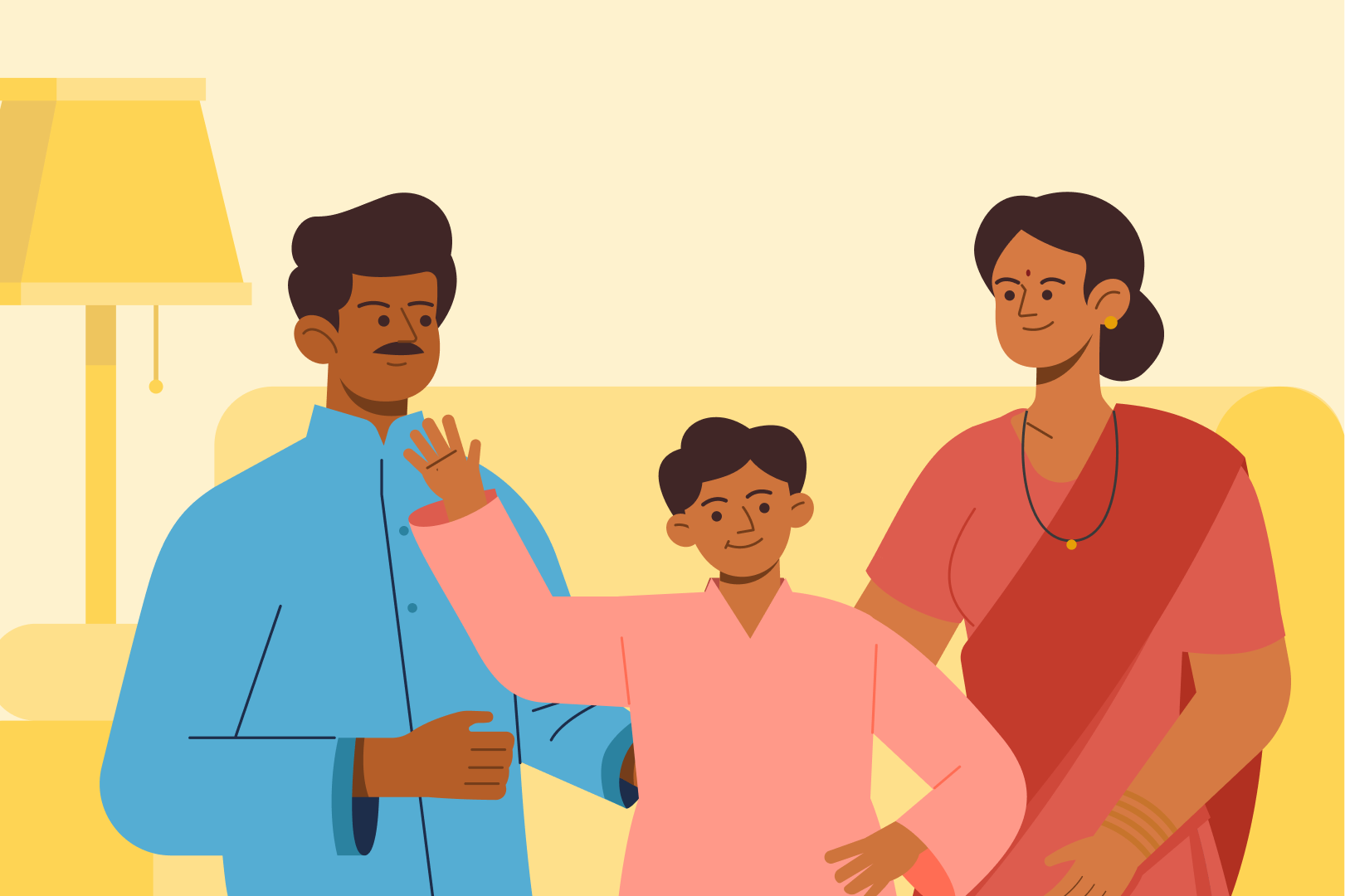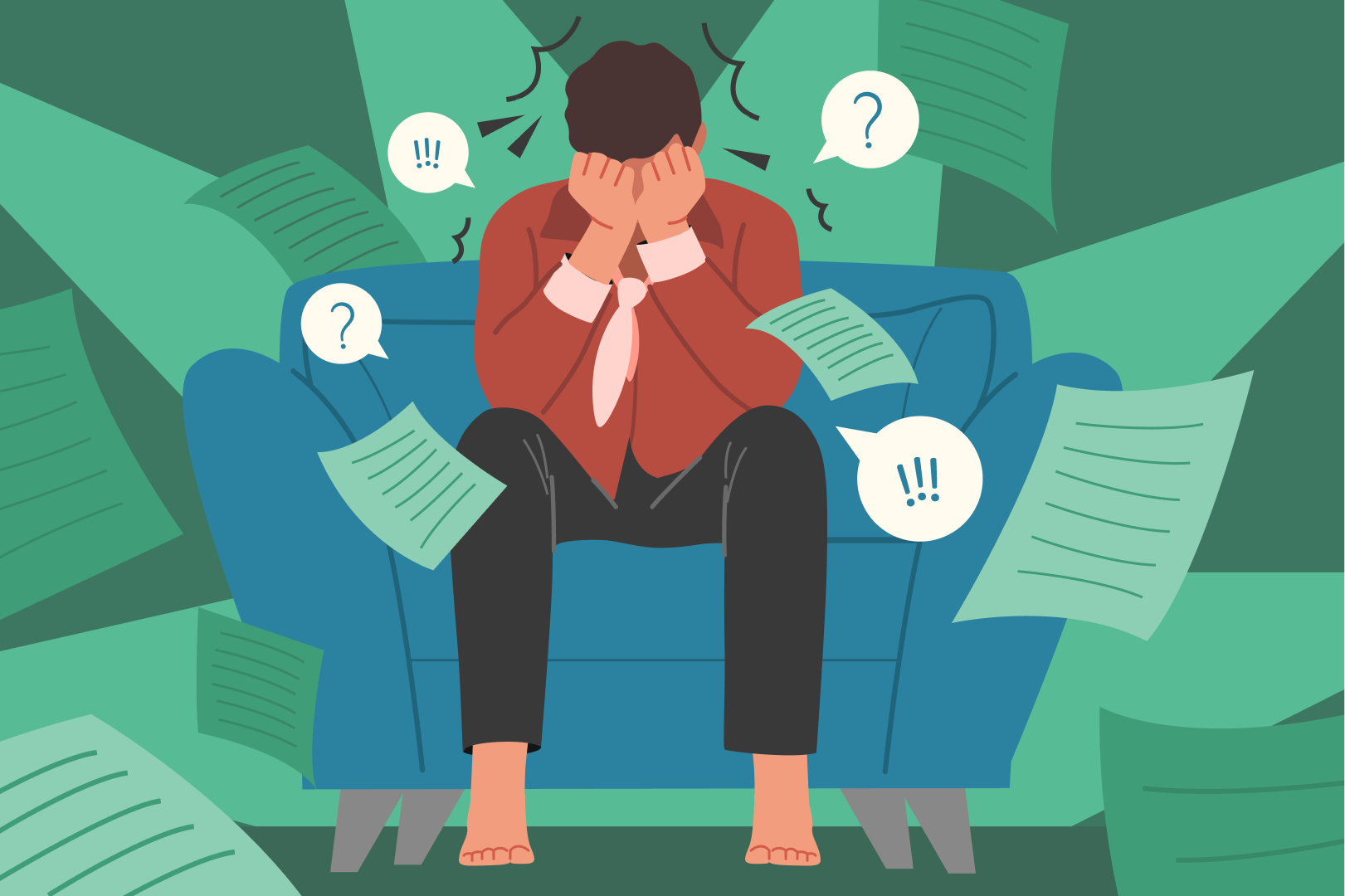Adolescents need many skills in order to successfully achieve their goal of increased independence. Some adolescents do not make this change smoothly. Their movement toward independence can cause stress and grief for parents and families.. A parent-child relationship which is very stressful or troubled during the preadolescent years can be a strong signal that professional help may be needed. Parents’ investment of time and energy in the child’s early years can prevent small problems of childhood from becoming larger problems of adolescence.
Part of the parental commitment to their children and adolescents is to be a source of support to depend upon, at least until young people have the age and experience and determination to fully depend upon themselves.
Life’s major changes experienced during adolescence – academic pressure, gaining independence from parents, intimate relationships with peers, physical maturation, starting romantic relationships, expectations from parents, etc. – are accompanied by a drastic increase in the frequency at which stressful events occur These changes and stressful events during adolescence may elevate to maladaptive behaviour and problems, such as depressive symptoms and anxiety symptoms , among others.A safe and successful passage from adolescence into adulthood is the right of every child. This right can only be fulfilled if families and societies make focused investments and provide opportunities to ensure that adolescents and youth progressively develop the knowledge, skills and resilience needed for a healthy, productive and fulfilling life.
Starting early is the best way for parents to prepare for their child’s adolescence. The following are ways that parents can prepare themselves and their child for a smoother transition and greater success in achieving the tasks of adolescent development:
- Providing a stable, safe and loving home environment
- Creating an atmosphere of honesty, mutual trust, and respect
- Creating a culture of open communication at family meal times
- Allowing age appropriate independence and assertiveness
- Developing a relationship that encourages your child to talk to you
- Teaching responsibility for their belongings and yours
- Teaching basic responsibility for household chores
- Teaching the importance of accepting limits
- Teaching the importance of thinking before acting
These are complex processes which occur gradually and start during infancy. A teenager’s adolescent years will be less stressful when parents and child have worked together on these tasks throughout the child’s earlier development.
The ability to talk openly about problems is one of the most important aspects of the parent and child relationship.
Developing this relationship and open communication takes time, persistence, and understanding. The relationship develops gradually by spending time with the teen. One challenge is finding quality, not rushed time for parents to spend with their adolescents; as schedules with after school activities, sports and jobs become busy during adolescence.
Family meal times, sharing stories of parents’ adolescence, playing board games, outings, vacations, and celebrations are important opportunities for parents to spend time with their adolescent. Parents should also try to spend some individual time with each child, praising positive behaviors and talking about difficult or upsetting things. This relationship creates the foundation for talking with the child when struggles and conflicts emerge during adolescence.
The human rights of adolescents and youth include, among others:
- Life, liberty and security
- Health
- Education
- Information
- Expression
- Association
- Freedom from discrimination
- Freedom from torture and other cruel, inhuman and degrading treatment or punishment including sexual violence
- Consent to marriage
Source: The Universal Declaration of Human Rights
Levels of Parental Risk and protective factors
Factors or circumstances associated with the risk of children experiencing mental health problems include family structure (such as lone parent, reconstituted families, large families); educational attainment of parents, poverty and low socioeconomic status.Four groups of young people as being particularly vulnerable to mental health problems. These groups were children with emotional and behavioural difficulties, homeless young people and those who get in trouble with the law.
It is clear that parenting style has a critical impact on children’s emotional and cognitive development. Key protective factors include feeling loved, trusted and understood, having interest in life, optimism, autonomy, self-acceptance, and resilience.
Parental support can be extreme sometimes – it is either inadequate (leave the child for example) or excessive (overprotection, for example.)
If the parent leaves the child, young people can wrestle with such issues as anxiety, insecurity, basic distrust, fear of commitment, low self-esteem, or high need for control.
“My parents were so caught up in divorcing each other and remarrying other people they just weren’t there for me,” is how one young person put it. “So I’ve had to count on myself.”
In cases of overprotection, young people can wrestle with such issues as dependency, lack of confidence, low self-reliance, immaturity, or irresponsibility from constant rescuing.
“My parents probably took too much care of me for my own good,” confessed another young person. “Any time life got hard or I got into trouble, they jumped in to help me out, and they still do.”
Mental health affects the way people think, feel and act. Taking care of our mental health is just as important as having a healthy body. As a parent, you play an important role in your child’s mental health:
- You can promote good mental health by the things you say and do, and through the environment you create at home.
- You can also learn about the early signs of mental health problems and know where to go for help.
Help children build strong, caring relationships:
- It’s important for children and youth to have strong relationships with family and friends. Spend some time together each night around the dinner table.
- A significant person who is consistently present in a child’s life plays a crucial role in helping them develop resilience. This person—often a parent or other family member—is someone your child spends a lot of time with and knows they can turn to when they need help.
- Show your children how to solve problems.
Help children and youth develop self-esteem, so that they feel good about themselves:
- Show lots of love and acceptance.
- Praise them when they do well. Recognize their efforts as well as what they achieve.
- Ask questions about their activities and interests.
- Help them set realistic goals.
Listen, and respect their feelings:
- It’s OK for children and youth to feel sad or angry. Encourage them to talk about how they feel.
- Keep communication and conversation flowing by asking questions and listening to your child. Mealtime can be a good time for talking.
- Help your child find someone to talk to if they don’t feel comfortable talking to you.
Create a safe, positive home environment:
- Be aware of your child’s media use, both the content and the amount of time spent on screens. This includes TV, movies, Internet, and gaming devices. Be aware of who they might be interacting with on social media and online games.
- Be careful about discussing serious family issues—such as finances, marital problems, or illness—around your children. Children can worry about these things.
- Provide time for physical activity, play, and family activities.
- Be a role model by taking care of your own mental health: Talk about your feelings. Make time for things you enjoy.
In difficult situations, help children and youth solve problems:
- Teach your child how to relax when they feel upset. This could be deep breathing, doing something calming (such as a quiet activity they enjoy), taking some time alone, or going for a walk.
- Talk about possible solutions or ideas to improve a situation and how to make it happen. Try not to take over.
Mental health issues can affect youth at any age. But certain situations can place some young people at a higher risk, including:
- A family history of mental illness.
- New immigrants and refugees who experience difficult economic circumstances.
- LGBTQ children and youth who experience bullying and/or rejection from their families.
- Big life changes such as moving to a new city or new school, caregiver separation or divorce, serious illness or death in a close relative or friend.
- Facing or witnessing trauma, including abuse.
- Substance use.
Unfortunately, too many children and youth don’t get help soon enough. Mental health disorders can prevent children and youth from succeeding in school, from making friends, or becoming independent from their parents. Children and youth with mental health disorders may have trouble reaching their developmental milestones.
The good news is that mental health disorders are treatable. There are many different approaches to helping children and youth struggling with emotional or mental health problems. Getting help early is important. It can prevent problems from becoming more serious, and can lessen the effect they have on your child’s development.
All children and youth are different. If you’re concerned your child may have a problem, look at whether there are changes in the way they think, feel or act. Mental health problems can also lead to physical changes. Ask yourself how your child is doing at home, at school and with friends.
Changes in thinking
- Saying negative things about themselves or blaming themselves for things beyond their control.
- Trouble concentrating.
- Frequent negative thoughts.
- Changes in school performance.
Changes in feelings
- Reactions or feelings that seem bigger than the situation.
- Seeming very unhappy, worried, guilty, fearful, irritable, sad, or angry.
- Feeling helpless, hopeless, lonely or rejected.
Changes in behaviour
- Wanting to be alone often.
- Crying easily.
- Showing less interest in or withdrawing from sports, games or other activities that they normally enjoy.
- Over-reacting, or sudden outbursts of anger or tears over small incidents.
- Seeming quieter than usual, less energetic.
- Trouble relaxing or sleeping.
- Spending a lot of time daydreaming.
- Falling back to less mature behaviours.
- Trouble getting along with friends.
Physical changes
- Headaches, tummy aches, neck pain, or general aches and pains.
- Lack of energy, or feeling tired all the time.
- Sleeping or eating problems.
- Too much energy or nervous habits such as nail biting, hair twisting or thumb sucking.
Remember: Just because you notice one or more of these changes does not mean your child or youth has a mental health problem.
There are many ways to help your child achieve good mental health. Sharing your concerns with the doctor is one of them. Talk to your child’s doctor:
- if the behaviours described above last for a while, or if they interfere with your child’s ability to function;
- if you have concerns about your child’s emotional and mental health;
- about your child’s behavioural development and emotional health at each well-child visit.
If your child or teen talks about suicide or harming themselves, call your doctor or local mental health crisis line right away.








